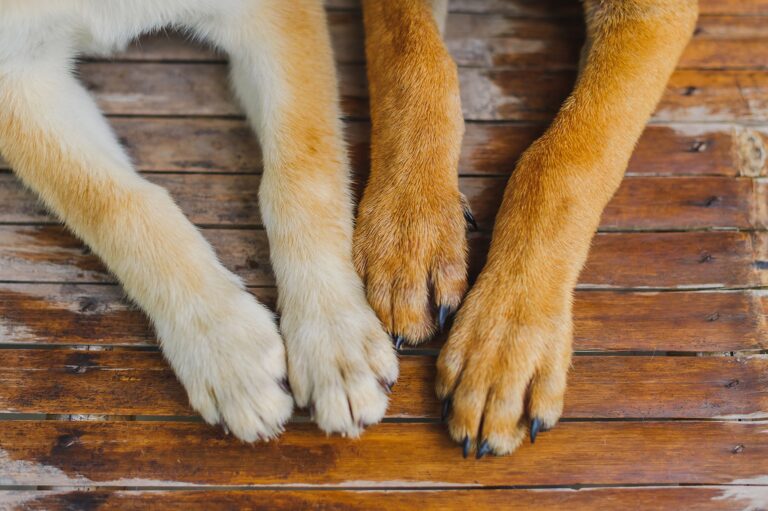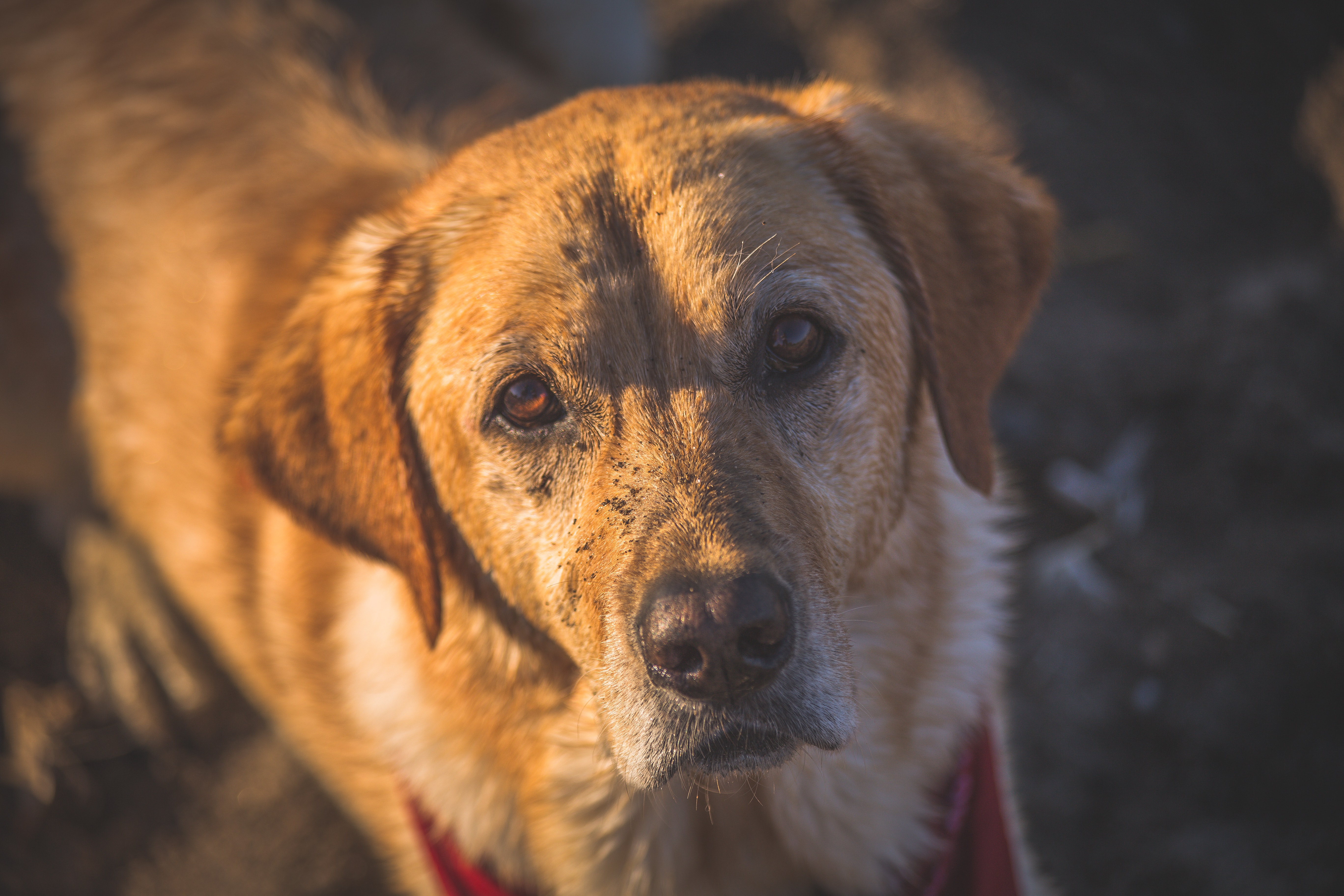Aging Gracefully: Taking Care of Senior Labrador
Do you want to know the proper way of taking care of senior Labrador? Well, I had the same thought since my furry companion started to slow down a bit. I realized that it was time to make some changes in his care.
Of course, every dog is unique; some may show signs of aging earlier or later. This doesn’t mean they’re necessarily old but a reminder to start paying extra attention to their changing needs. So let’s explore more about taking care of senior Labrador and how to make sure your pup is aging gracefully.
Senior Labrador Overview
According to the American Kennel Club, labradors are a good representation of typical large-breed dogs. They usually live up to 12 years, so they become seniors at around 8 to 9 years old. Factors such as weight, breed, and overall health play an important role. So I will discuss these factors below so you can better understand your Lab’s needs at different stages.
🐾Weight
Labradors are known for being large dogs, and their weight is important in determining how long they will live. Labradors are generally considered to be at an increased risk for joint diseases as they age, and this risk becomes more significant if they carry excess weight. A couple of extra pounds can significantly affect a dog’s lifespan. As a Labrador owner, keeping your furry friend’s weight in check is essential to ensure their long life.
🐾Breed
Different dog breeds age at different rates, and the Labrador breed is no exception. While Labradors tend to age gracefully, their lifespan can be affected by genetic mutations or diseases. Labradors are prone to developing hip and elbow dysplasia, leading to severe pain, lameness, and arthritis. These conditions can affect a dog’s quality of life, especially in their senior years. Therefore, it is vital to monitor your Lab’s genetic health by getting them tested for potential health conditions.
🐾Overall Health
Labradors who are generally healthy tend to age well and have a longer lifespan. Regular medical check-ups, proper exercise, and a nutritious diet are essential for maintaining good health. As they age, their immune systems weaken and become more susceptible to illness. Therefore, it is essential always to keep an eye on your Labrador’s overall health and be quick to act if you notice any changes. Regular exercise helps maintain ideal body weight and keeps the joints healthy, while a proper diet filled with vitamins and minerals helps to improve their overall health and condition.
Thus, it’s important to remember that genetic diseases, weight issues, and overall health can all impact and lead to an earlier or later onset of senior age.
Changes in Behavior of an Aging Labrador Retriever
Aside from physical changes, you may also notice that your Labrador’s behavior has changed. Below are some common behavioral changes seen in aging Labradors:
👉Incontinence
As dogs age, they may experience incontinence. This means they might urinate or defecate inside the house, and it is not due to a lack of training but rather due to weakened muscles. It may also be due to a urinary tract infection or another underlying health condition. Thus, taking them outside more frequently and providing them with dog diapers when inside the home is imperative.
👉Anxiety
Older dog can also suffer from anxiety. They may become agitated or restless, and it may lead to decreased appetites or sleeplessness. They may also bark excessively, become destructive or lick things excessively. If you notice such changes, it might be a sign of anxiety, which may be triggered by a change in environment, illness, or advancing age. In such cases, it is essential to consult with your veterinarian and follow the treatment plan, including prescribed medication or behavioral therapy.
👉Cognitive Decline
Adult dogs can also suffer from cognitive decline as they age. They may forget your commands, have difficulty recognizing familiar people and places, or appear less interested in their surroundings. It may be hard to come to terms with such changes, but it’s essential to know that this is a natural process, and despite the decline, your dog can still enjoy a good quality of life. All you need to do is provide extra mental and physical stimulation, keeping them active and their environment consistent.
👉Regression in Housetraining
You might think your pup has forgotten all the house training you provided, but that’s probably not true. Older dogs experience incontinence because of muscle weakness and the inability to control their bladder. It’s vital to provide a comfortable place for your dog to eliminate, clean it up regularly, and avoid becoming frustrated. If the problem persists, do not hesitate to consult your vet for assistance.
👉Aggression
The need for space and alone time might be more noticeable in older dogs. Sometimes, they become more territorial and protective as they age, and this can result in aggression. It’s essential to monitor your dog’s behavior when someone approaches. Be prepared to keep them in a safe and comfortable spot when people come over.
With age, your Labrador may experience physical and mental changes that require you to adjust your approach. Regular vet visits are essential for monitoring their health, but it’s also vital to be careful of any behavioral changes that could signal underlying medical conditions or anxiety.
Common Health Concerns for Senior Labradors
Like us humans, senior Labradors require special attention and care. It’s essential to be aware of common health conditions that can affect them as they age, such as:
1: Arthritis
Arthritis is a common condition that affects senior dogs, and it can cause chronic pain and stiffness in their joints. As Labradors age, their joints can become stiff due to wear and tear, making it challenging to move around and play. Symptoms of arthritis may include difficulty getting up, limping, and a reluctance to go for walks. If you notice any of these symptoms, you must take your dog to the vet for a proper diagnosis. Treatment for arthritis typically involves medication, weight management, and exercise modification. Swimming is an excellent low-impact exercise that can help alleviate arthritis symptoms.
2: Kidney Disease
Another common problem that senior Labradors face is kidney disease. When the kidneys are not able to effectively filter waste products from the blood, it results in kidney disease. As a result, toxins can build up in your dog’s body, causing them to feel unwell. Senior Labradors are more susceptible to kidney disease due to their age. Early signs of kidney disease may include increased thirst, loss of appetite, vomiting, and weakness. Regular vet check-ups and blood tests are crucial for detecting kidney disease early. There is no cure for kidney disease, but treatment can manage the symptoms and prolong your dog’s life.
3: Canine Cognitive Dysfunction
Canine cognitive dysfunction, or doggy dementia, is an age-related decline in cognitive function. As your dog ages, its cognitive function may deteriorate, leading to behavior, memory, and learning changes. Some common signs of Canine Cognitive Dysfunction include disorientation, loss of interest in play, changes in sleep patterns, and aggressive behavior. While there is no cure for Canine Cognitive Dysfunction, medication, supplements, and environmental enrichment can help improve your dog’s quality of life. If you suspect your dog is experiencing cognitive decline, speak to your vet.
4: Lumps and Bumps
As senior Labradors are prone to various lumps and bumps, one of them is known as lipomas, which are fatty lumps that usually develop under the skin. While these lumps are not serious, they can make moving around or functioning a bit difficult for your puppy. In some instances, certain lumps can be cancerous. Therefore, it’s crucial to keep your senior Labrador constantly checked by a veterinarian.
5: Heart Disease
Heart diseases in senior Labradors are quite common, and they typically manifest in the form of Pulmonary Hypertension or Congestive Heart Failure. Symptoms of heart disease in dogs include lethargy, fatigue, shortness of breath, and coughing. You’ll need to consult your vet if you notice any of these symptoms in your furry friend. They will conduct several tests to confirm the disease and prescribe any medications to reduce the symptoms.
6: Dental Disease
Dental diseases are often common among senior dogs, particularly the ones associated with poor oral hygiene. Tartar buildup, gum disease, and halitosis are some of the most common dental health concerns your senior Labradors may experience. It’s crucial to schedule routine dental cleanings at least once a year to prevent tartar buildup and maintain good oral hygiene. Also, providing dental bones and chew toys for your dog can help keep their teeth healthy.
7: Endocrine Diseases
Endocrine diseases such as weight gain, Cushing’s disease, or diabetes are quite common in senior dogs, particularly Labradors. In most cases, weight gain occurs due to the decline in metabolism that comes with aging. However, if your Labrador is gaining weight abnormally, it could indicate an underlying issue like Cushing’s or diabetes, which typically manifest in weight gain, increased thirst, and frequent urination. As such, you must schedule a check-up with your vet if you notice any of these signs.
Regular vet check-ups are vital for detecting any health concerns early and managing them effectively.
Taking Care of Senior Labrador
Now that you are aware of the common health concerns your senior Labradors may experience, it’s time to discuss ways in which you can provide them with the best possible care. Here are a few tips:
✔️Nutrition
With age, the dietary needs of our pups change, too, requiring us to review their daily meals and consider different factors such as calories, proteins, and fats.
Caloric Requirements
Senior Labradors have a slower metabolism and less energy to burn as they age. Therefore, you should reduce their daily calorie intake to avoid weight gain and other health-related problems. A suitable guideline is to reduce their food intake by 10%, though it still varies for each pup.
Adequate Protein Intake
Protein is a crucial nutrient for any dog’s diet, but it is essential for senior Labradors as it helps maintain and repair muscles. It is advisable to choose dog foods containing at least 25% protein, which should come from real meat sources such as chicken, beef, or fish. Avoid dog foods that contain processed protein as they are difficult for senior dogs to digest, leading to digestive issues and other health problems.
Fats and Carbohydrates
Before choosing a dog food, check the amount and source of fat it contains. Senior Labs need high-quality fats from sources such as fish oil, chicken fat, and flaxseeds to maintain healthy skin and coats. Carbohydrates are also essential for energy but should not be the primary ingredient in your dog’s diet. Choose a dog food with no artificial preservatives or additives.
Vitamins and Minerals
Senior Labradors have a weaker immune systems; hence it is vital to provide them with the necessary vitamins and minerals to keep them healthy. Check for dog foods that contain vitamins C and E, which can help reduce inflammation and promote joint mobility. Choose dog foods that contain antioxidants, such as blueberries, cranberries, and pumpkin, that can help neutralize harmful free radicals that can cause cellular damage.
✔️Exercise
Before you start any exercise routine for your senior Labrador Retriever, it is important to understand their exercise needs. Every dog is different, and what works for one may not work for another. Labrador Retrievers are high-energy dogs that require daily exercise, but senior Labrador Retrievers may need a more gentle exercise routine.
Take Shorter But More Frequent Walks
Long walks may have been an exercise for your younger Labrador Retriever, but a senior dog might need help to walk as far and can tire easily. Therefore, taking shorter but more frequent walks can be beneficial. Short, 15-20 minute walks, three to four times daily, can help improve circulation, maintain joint mobility, and keep them active without over-exerting them.
Incorporate Gentle Exercises and Stretching
Engage them in gentle exercises like swimming or playing fetch in a shallow pool. Swimming is a great way for seniors to work on low-impact exercises, benefiting their muscles, joints, and cardiovascular health. Stretching exercises can help maintain flexibility and loosen up stiff muscles. You can try simple stretches like gently massaging their joints or using a short playtime before a walk.
Provide Mental and Physical Stimulation
Mental activities like obedience training, puzzle toys, or hide and seek can help to keep your senior Labrador Retriever’s mind sharp and engaged. Physical stimulation like agility exercises, ball tossing, or jumping through hoops during playtime can help maintain muscles, joints, and heart health.
✔️Grooming
Regular grooming is important for maintaining good hygiene and overall health for your furry friend. As your Labrador ages, his coat may become thinner, and he may develop skin conditions that make him more prone to skin infections. Brush your dog regularly to keep his coat clean and remove any loose hair that could cause matting or tangles. Weekly baths with mild dog shampoo are also important to keep your dog’s skin clean and healthy.
Trim your dog’s nails regularly to prevent them from growing too long and causing discomfort when walking. If you’re unsure about nail trimming, consult your veterinarian or a professional groomer. Keep your dog’s ears clean and dry, and check them regularly for signs of infection. Aged Labradors are also more susceptible to dental problems, so regular tooth brushing and professional cleanings can help promote oral health.
✔️Supplements
Giving our aging Labradors the right supplements can help support their joint health, boost their immune system, and promote overall well-being. Below are some of the supplements that may benefit senior Labradors:
Glucosamine and Chondroitin
Joint health can deteriorate as dogs get older, making it harder for them to move around and enjoy their daily activities. Glucosamine and Chondroitin supplements help lubricate joints, reduce inflammation, and slow down cartilage destruction. Adding these supplements to your senior Lab’s diet can ease the pain and stiffness associated with arthritis and improve mobility.
Omega-3 Fatty Acids
Omega-3 fatty acids are essential for skin and coat health, cognitive function, and heart health. Adding fish oil supplements or fatty acid-rich foods like salmon to your dog’s diet can help reduce inflammation, support brain function, and improve their skin and coat.
Probiotics
Our senior Labs’ digestive systems can experience changes, leading to digestive issues such as constipation, diarrhea, or other gastrointestinal imbalances. Probiotics can help improve digestive functions, boost the immune system, and support regular bowel movements. Adding a probiotic supplement to your dog’s diet can improve their digestive health and overall wellness.
Vitamin E
Vitamin E is an antioxidant that helps protect cells from damage caused by free radicals. As dog’s age, they might become more vulnerable to age-related diseases, and Vitamin E can help reduce the risk of diseases like cancer, heart disease, and cataracts. Adding Vitamin E supplements or foods rich in antioxidants like blueberries or broccoli to your senior Labs’ diet can help protect their cells and support overall health.
Green-Lipped Mussel Powder
Green Lipped Mussel Powder is a natural source of anti-inflammatory properties, making it an ideal supplement for dogs with joint pain, arthritis, or other inflammation-related conditions. This supplement helps reduce inflammation, aids in joint lubrication and promotes mobility.
✔️Vet Care
Regular visits to the vet are especially important for an aged Labrador. Your veterinarian can help you identify age-related health issues and recommend appropriate treatment. Some common health concerns in aged Labradors include arthritis, obesity, and dental problems. Regular check-ups can help you catch these issues early and prevent them from getting worse.
Your veterinarian may also recommend senior-specific health screenings such as blood tests, X-rays, or cardiac exams. These screenings can help identify underlying health issues you may not know. Vaccinations are also essential for keeping your dog healthy and protected against major diseases.
It’s important to ensure they get proper nutrition, exercise, grooming, and regular vet care to keep them healthy. With the right care and attention, your senior Labrador Retriever will stay as happy and active as ever.
Frequently Asked Questions
At what age do Labradors slow down?
Well, I actually have a 10-year-old Labrador, and I have noticed that he started slowing down around 2-4 years of age. Before that, he used to run around like a puppy and had no problem keeping up on long walks or hikes. But now, he gets tired easily and takes frequent breaks. However, it’s important to remember that every dog is different, and certain health issues or genetics can also contribute to a Labrador slowing down earlier or later in life.
What is the hardest age for a Labrador?
You know, I have always said that owning a Labrador is like having a perpetual puppy. It’s true! These dogs stay young at heart for most of their lives. But if I had to pinpoint an age where they can be particularly tricky, I would say it’s around the one-year mark. That’s when they are still full of energy and mischief yet have outgrown a true puppy’s sweet, docile nature. They want to test their boundaries and see what they can get away with.
What Labradors live longer?
You won’t believe it, but I think black and yellow labs have their life hacks when it comes to living longer. In my experience, I have seen several of them clocking more years than their chocolate counterparts. Maybe it’s in their genes or the fact that they seem to be more active. I really can’t tell. But one thing’s for sure; there is a certain gracefulness in the way black and yellow labs age that takes my breath away. They know how to live their best life, even in old age.
What is the most common cause of death in Labradors?
It turns out that the most common cause of death in Labradors is cancer, specifically lymphoma. It was tough to hear, especially since I had grown so attached to my furry friend. I watched for any unusual behavior or symptoms and highly recommended that other Lab owners do the same. It’s always better to be safe than sorry about our four-legged family members.
Do Labradors get more cuddly with age?
Yes, absolutely. While Labradors are known for their high energy and love of activity, they also enjoy nothing more than a good cuddle session with their humans. As your Labrador ages, they may want to spend more time snuggling up on the couch with you. It’s a sign they’re comfortable with you and feel safe in your presence. Enjoy this precious time together!
Final Words
After all the researched information, taking care of senior Labrador requires patience, love, and commitment. As for my experience, It’s not always easy, but seeing my furry companion thrive and continue to love life throughout their golden years is worth it. From regular veterinary check-ups to providing them with cozy bedding and a healthy diet, there are plenty of ways to ensure your senior dog leads a happy life. But most importantly, spending quality time with your furry companion as they age is priceless. The joy they bring to our lives is immeasurable, and the love and care we give them in return can make all the difference in their twilight years.










